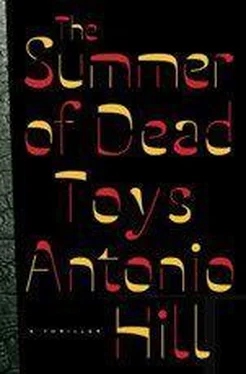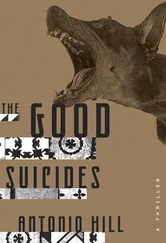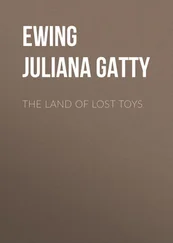Antonio Hill - The Summer of Dead Toys
Здесь есть возможность читать онлайн «Antonio Hill - The Summer of Dead Toys» весь текст электронной книги совершенно бесплатно (целиком полную версию без сокращений). В некоторых случаях можно слушать аудио, скачать через торрент в формате fb2 и присутствует краткое содержание. Жанр: Триллер, на английском языке. Описание произведения, (предисловие) а так же отзывы посетителей доступны на портале библиотеки ЛибКат.
- Название:The Summer of Dead Toys
- Автор:
- Жанр:
- Год:неизвестен
- ISBN:нет данных
- Рейтинг книги:4 / 5. Голосов: 1
-
Избранное:Добавить в избранное
- Отзывы:
-
Ваша оценка:
- 80
- 1
- 2
- 3
- 4
- 5
The Summer of Dead Toys: краткое содержание, описание и аннотация
Предлагаем к чтению аннотацию, описание, краткое содержание или предисловие (зависит от того, что написал сам автор книги «The Summer of Dead Toys»). Если вы не нашли необходимую информацию о книге — напишите в комментариях, мы постараемся отыскать её.
The Summer of Dead Toys — читать онлайн бесплатно полную книгу (весь текст) целиком
Ниже представлен текст книги, разбитый по страницам. Система сохранения места последней прочитанной страницы, позволяет с удобством читать онлайн бесплатно книгу «The Summer of Dead Toys», без необходимости каждый раз заново искать на чём Вы остановились. Поставьте закладку, и сможете в любой момент перейти на страницу, на которой закончили чтение.
Интервал:
Закладка:
At last I got to the door and although I’d always been taught to knock before entering, I told myself it wasn’t necessary: Iris was sleeping and also the main thing was to not make a noise. She was sharing the room with her sister instead of with the other children because they weren’t at camp: they were the cook’s daughters. And that night her sister was sleeping with her mother. I’d heard Uncle Fèlix say so. Iris had to spend two days locked in her room, alone, to learn her lesson. Opening the door I saw that the windows were completely closed: they were strange, different to the ones in my house in Barcelona. They had glass, then a wooden board that didn’t let even a tiny bit of light in. “Iris,” I whispered, feeling my way. “Iris, wake up.” As I couldn’t find the light switch, I moved closer to the bed and felt it blindly, from the foot up. Suddenly my hands brushed against something soft and woolly. I jumped back and in doing so I stumbled into the nightstand, which shook a little. Then I remembered that there was a lamp on that nightstand, which Iris usually had on until the early hours of the morning to read. She read too much, her mother said. She threatened to take away her books if she didn’t finish her dinner. The little lamp was there. I followed the cable up with my hand until I found the switch that lit the light bulb. It wasn’t a very strong light, but enough to see that the room was almost empty: the dolls weren’t on the shelves, or Iris in the bed, of course. Only the teddy bear, the same one Iris had lent me for the first few nights so I wouldn’t be afraid, but I returned to her when one of the kids laughed at me. He was there, on the pillow, disembowelled: his stomach was open as if he’d had an operation and a green stuffing was showing.
I breathed in again and knelt down to check if there was someone underneath the bed: there was only dust. And suddenly I was also annoyed with Iris, like everyone. Why did she do these things? Run away, disobey. That summer her mother was scolding her every minute: for not eating, for answering back, for not studying, for continually pestering her sister Inés. If she’d run away again while she was being punished, Uncle Fèlix was going to be really angry. I remember for a moment I thought of telling him, but I told myself that wouldn’t be good: we were friends, Iris and I, and in spite of her being older than me she never minded playing with me. Then I spotted the window and thought maybe she had gone down to the patio at first light, like I had, while everyone was asleep. It was hard, but I managed to move the metal latch which held the wood in place. It was already day. Before my eyes the wood rose, lines of very tall trees reaching up the slopes of the mountains. By day it didn’t scare me; it was even pretty, with different shades of green. I didn’t see anyone on the patio and I was already closing the window when it occurred to me to look in the direction of the swimming pool. I could only see a little piece, so I leaned a little further out to have a wider view. I remember as if it were right now the happiness I felt on seeing her: that intense, childhood happiness that soars with things as simple as an icecream or a visit to a fairground. Iris was there, in the water. She hadn’t run away, she’d just gone for a swim! I had to stop myself shouting and I limited myself to waving to get her attention, although I realized it was silly since from where she was she couldn’t see me. I’d have to wait until she got to the opposite side of the pool, the part where the water was shallower, where the little kids swam and those not daring to get in at the deep end.
And now, years later, thinking of all this, reliving every detail of that early morning, the same cold astonishment as then overcomes me. Because barely seconds later, I realized that Iris wasn’t moving, that she was still in the water, as if she was playing dead but the reverse. I know suddenly I didn’t care if they heard me and I ran down to the pool, but I didn’t dare go into the water. Even at six years old I knew Iris had drowned. And then I saw the dolls: they were floating, face down, like little dead Irises.
The image was so powerful, so disturbing that Héctor minimized the screen automatically. He looked for his packet of cigarettes and lit one, contravening all the rules. He took a deep drag and slowly exhaled. While he calmed down, blessed nicotine, his brain began to put this new piece in a puzzle becoming ever more macabre. And he knew, with the certainty given by years in the job, that until he learned exactly how this Iris had died, he wouldn’t understand what had happened to Marc at the window or Gina in the bathtub. Too many dead, he said to himself again. Too many accidents. Too many young people who’d lost their lives.
The telephone interrupted his musings and he looked at the screen, somewhere between annoyed and relieved.
“Joana?” he answered.
“Is it very late? Sorry. .”
“No. I was working.”
“Fèlix called me.” She paused. “He told me about the girl.”
“Oh?”
“Is it true? This girl left a note saying she killed Marc?” There was a note of disbelief and hope in her voice.
Héctor delayed a few seconds before responding, and spoke with extreme caution.
“So it seems. Although I wouldn’t be too sure. There are. . there are still lots of questions.”
Silence. As if Joana was going through that vague response, as if she was thinking about what to say next.
“I don’t want to be alone tonight,” she said finally.
He looked at the screen; he thought of his hostile flat, the absence of Ruth, Joana’s mature and beautiful face. Why not? Two loners keeping each other company on a summer night. There couldn’t be anything wrong with that.
“Me neither,” he replied. “I’m coming over.”
SATURDAY
23
Deep in his mind Héctor knows he’s dreaming, but he dismisses the idea and dives into this landscape of lively colors, this childish drawing supposed to be a wood: green, almost round splotches, blue rays dotted with lovely white bits of cotton, a yellow sun with an unfinished smile. A naïf set designed by Tim Burton and colored with Crayola. However, as soon as he steps on the brown stones forming the path, the whole space changes, as if his human presence transforms the environment all of a sudden. The green splotches become trees with high branches, thick with leaves; the clouds become fine threads and the sun really is warming. He hears the crunch of his steps on the gravel and moves decisively, as if he knows where he’s going. He is surprised on looking and seeing that the birds are still fake: two curved lines joined at the centre suspended in the air. This is the proof he needs to reinforce his belief that it’s all a dream and keep going forward, as if he’s suddenly become the main character in an animated film. It’s then the wind begins to blow: at the beginning it is a dull murmur that grows little by little, until it forms a grayish gale that sweeps these false birds away and shakes the branches from the trees without the least mercy. He can barely keep going; every step is a struggle against this unexpected whirlwind which has darkened the painting: leaves come shooting off the trees and form a green blanket that obscures the light. He must go on, he can’t stop and suddenly he knows why: he has to find Guillermo before this hurricane carries him off forever. Damn it. . He told him not to wander off, not to go into the forest alone, but as usual his son took no notice. This mixture of worry and irritation gives him strength to keep moving forward in spite of this unexpected whirlwind and a road that is now rising in the form of a steep slope. He surprises himself thinking of how his son must be punished. He has never raised his hand to him, but this time he’s gone too far. He shouts his name, although he knows with this whirlwind of leaves shouting is useless. He ascends with difficulty, on his knees when the intensity of the gale prevents him continuing on foot. For some reason, he knows that he just has to reach the summit of this rocky road and everything will be different. Finally he manages to stand up again and, after a momentary stagger, he manages to get going and keep ascending. The wind has ceased to be an enemy and has become his ally: it pushes him upwards and his feet barely graze the ground. He can make out the end of the road and mentally prepares himself for what might be ahead. He wants to see his son safe and sound, but at the same time he doesn’t want the relief to stifle his irritation completely, as always happens. No, not this time. One last push precipitates him to the other side of the road and he gathers all his strength to remain standing. As soon as he goes past the summit the wind dies down and the scene changes. The sun shines. Yes! He was right. There he is. The figure of Guillermo, standing in a meadow with his back to him, innocently unaware of all his father has gone through to find him. He can’t help a sigh seeing his son is there perfectly well. He rests for a second or two. He realizes, without the least surprise, that the rage that has carried him here is beginning to evaporate: it seems to leave with each breath, melt in the air. And then he tightens his jaw and tenses his shoulders. He closes his fists. He focuses on his anger to revive himself. He walks rapidly and decidedly, crushing the soft tufts of grass, and approaches the boy, who remains immobile, distracted. This time he’s going to teach him a good lesson, whatever the cost. It’s what he must do, what his father would have done in his place. He grabs him by the shoulder and Guillermo turns around. To his surprise, he sees his face is soaked with tears. The boy points silently ahead. And then Héctor sees what his son sees: the swimming pool of blue water, and a little blonde girl floating among dead dolls. “It’s Iris, Papa,” whispers his son. And then, as they slowly approach the edge of that pool dug out of the plain, the dolls turn over, slowly. They look at them with wide eyes and their plastic lips murmur: “Alwaysiris, alwaysiris.”
Читать дальшеИнтервал:
Закладка:
Похожие книги на «The Summer of Dead Toys»
Представляем Вашему вниманию похожие книги на «The Summer of Dead Toys» списком для выбора. Мы отобрали схожую по названию и смыслу литературу в надежде предоставить читателям больше вариантов отыскать новые, интересные, ещё непрочитанные произведения.
Обсуждение, отзывы о книге «The Summer of Dead Toys» и просто собственные мнения читателей. Оставьте ваши комментарии, напишите, что Вы думаете о произведении, его смысле или главных героях. Укажите что конкретно понравилось, а что нет, и почему Вы так считаете.












